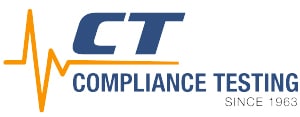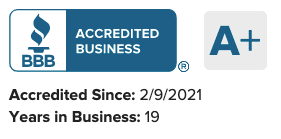Get Free Help From Our Engineers With FCC Compliance
Need help complying with FCC Part 15 or other standards? We work with businesses and individuals across the country, including in , to achieve compliance with Part 15 and other FCC regulations.
Click the “Talk to Our Team” button or call us on 866-540-5287 to ask our engineers your question about FCC testing and compliance, or request a free quote for testing and achieving FCC authorization for your device.

One of the most challenging aspects of creating an electronic device isn’t just the development process, but making sure it complies with regulations such as the FCC Part 15 rules, which are designed to limit radio emissions and ensure electromagnetic compatibility (EMC).
One key step in the design and development process of your device which can affect the FCC testing and compliance process is your choice of module, namely whether you select a module that is pre-certified, go with a non-certified module, or design your own.
Understanding the difference between a pre-certified module and a non-certified module has a significant impact on the testing and authorization process for your device. As such, the type of module you select isn’t a decision you want to rush through.
As specialists in FCC compliance, we can help you to achieve FCC certification for your device right from the start of the process. To ask a question, or to request a quote about the lab testing and compliance process, contact us online or call us at 866-540-5287.
You can also continue reading below to learn more about what pre-certified modules are, why a pre-certified module may reduce the cost of getting the FCC mark for your device, and what you should know about the process of using this type of module in your device.
What is a Pre-Certified Module?
To start, let’s establish what a pre-certified module is, as well as how a pre-certified module can differ from a non-certified or custom module.
The term “pre-certified module” refers to a radio frequency (RF) module that is already certified by the Federal Communications Commission, or FCC. A module is a circuit board that contains the circuitry required to allow for wireless communication. Typically, an RF module is integrated into your device to allow it to communicate with other devices and equipment.
For example, adding an RF module to your device can provide Wi-Fi functionality, or allow it to function as a Bluetooth device.
Devices that can emit radio frequency energy are required by law to comply with regulations to restrict unwanted emissions, such as FCC Part 15 and/or Part 18. These regulations are made to ensure that devices that emit radio frequency energy do not interfere with each other.
A pre-certified module is an RF module that has already undergone testing and is approved by the FCC. These modules tend to be designed to easily integrate into electronic devices, giving you, as a manufacturer, a shortcut in the compliance process.
In contrast, a non-certified module is a pre-made RF module that has not been certified by the FCC. A custom module is your own custom-made RF module that, due to the fact that it’s built specifically for your device, is also not certified.
Using a pre-certified module in your device allows you to leverage the module’s existing FCC certification. This can help you to save both time and money on extensive testing that may be required for a non-certified or custom module.
Pre-certified RF modules come with technical documentation to verify their compliance with the FCC’s regulations for transmitters. This documentation is important for certifying your device at the end of the testing process — a topic we’ll discuss in more detail further down the page.
Like other devices certified by the FCC, pre-certified modules have an FCC ID. You can check that a module is certified by entering its FCC ID number into the FCC’s online ID search tool.
Pre-Certified Modules and FCC Compliance
Incorporating a pre-certified module into your electronic device can streamline your process of achieving FCC compliance. Instead of having to have the module itself certified, you can take advantage of the fact that the FCC recognizes the certification of the existing RF module.
This can significantly reduce the amount of testing that needs to be performed on your device, as the component most likely to cause significant emissions is already certified.
This has numerous advantages for you as a device manufacturer. First, it reduces the cost of testing and ensuring compliance for your device. Second, it can speed up your time to market, as the testing timeline for your device will be shortened by as much as several weeks.
Third, it reduces risk for you as a manufacturer. Even if you use a non-certified RF module, or develop your own RF module, in addition to the cost of testing, there is also a risk that the RF module may fail to achieve certification on its first testing cycle.
This could significantly increase costs and delay your device’s authorization from the FCC — a significant risk when you’re planning to go to market on a fast schedule or limited budget.
Finally, because using a pre-certified module reduces costs, time and risks, it allows you to put your time and effort into other aspects of your device. This means that you’re more able to work on other aspects of FCC compliance, or on your device’s design and functionality.
Disadvantages of Pre-Certified Modules
While using a pre-certified module offers numerous benefits, this approach can also have some downsides.
First, using a pre-certified module does not guarantee that your device, as a whole, will receive authorization from the FCC. If your device emits excessive RF energy, lacks immunity, or does not comply with other requirements of FCC Part 15, it may still fail to achieve compliance.
This means that it’s still important to pay attention to other aspects of FCC compliance in your device’s design and development stages.
Pre-certified RF modules can also have other potential disadvantages:
- On average, pre-certified RF modules are more expensive than non-certified modules, as the cost of testing and certification is factored into the per-unit price.
- As a manufacturer, you’re limited in your ability to change these modules. For example, you can’t make changes to the modulation scheme or antenna type.
- Using a pre-certified module may create a supply chain risk, as you may be unable to manufacture your device if the specific module becomes unavailable.
It’s also important to make sure that you incorporate the module into your device in a way that doesn’t cause potential compliance issues. Even small changes to the operating environment, for example, could affect a module’s FCC compliance status.
Not sure about which type of RF module to choose for your device? Contact our team online or call our engineers at 866-540-5287 to discuss the testing and compliance process for different module types, including pre-certified and custom RF modules.
Does Your Device Still Need FCC Testing?
Even if you use a pre-certified RF module, your device will still need to complete lab testing to verify that it complies with FCC regulations. However, the extent of testing required is reduced significantly, typically resulting in lower testing costs and a faster compliance process.
This testing ensures that your device itself is compliant with FCC regulations, even if the radio frequency module itself is already certified. Testing verifies that the integration of the module in your device hasn’t introduced any potential non-compliance issues.
By law, the FCC requires that the final product as it will go on sale, not only its components, is compliant with its standards for emissions, immunity and electromagnetic compatibility.
Contact Us to Discuss FCC Testing & Compliance
As an ANSI-certified EMC testing lab, we specialize in helping individuals and businesses test their devices and achieve compliance with EMC regulations, including FCC Part 15 in the US, European Conformity (CE) regulations in the EU, and other international standards.
Whether you use a pre-certified RF module, a non-certified module, or design your own radio frequency module based on the needs of your device, we can help you complete testing and achieve FCC authorization.
To request a quote for testing your device, or to ask our engineers and compliance specialists any questions you might have about the testing and certification process, contact us online or call us at 866-540-5287.
Request a Free Quote From Our Team
Please enter your name, contact information, and any information about your device and the type of testing you need into the form below. Our team of engineers and compliance specialists will contact you as soon as possible with a free quote for your project.




